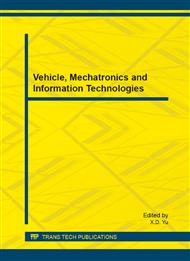p.2371
p.2375
p.2379
p.2383
p.2387
p.2391
p.2395
p.2399
p.2403
Research on Space System with ACP Method
Abstract:
The ACP (artificial societies, computational experiments, and parallel execution) method, derived from parallel systems theory, belongs to the research field of meta-synthesis. During the past 10 years after it was proposed, ACP has been applied in transportation, agriculture and economics, demonstrating its advantages. In this paper, ACP is initially proposed to apply in research of space system in the hope that an artificial system can be built for tests, thereby providing guide to construction of real space system. Specifically, modeling of special unit is conducted with the Agent-based approach; high-performance computer is provided for computational experiment; and finally the real-time data published on web is used for parallel execution.
Info:
Periodical:
Pages:
2387-2390
Citation:
Online since:
August 2013
Authors:
Keywords:
Price:
Сopyright:
© 2013 Trans Tech Publications Ltd. All Rights Reserved
Share:
Citation:


